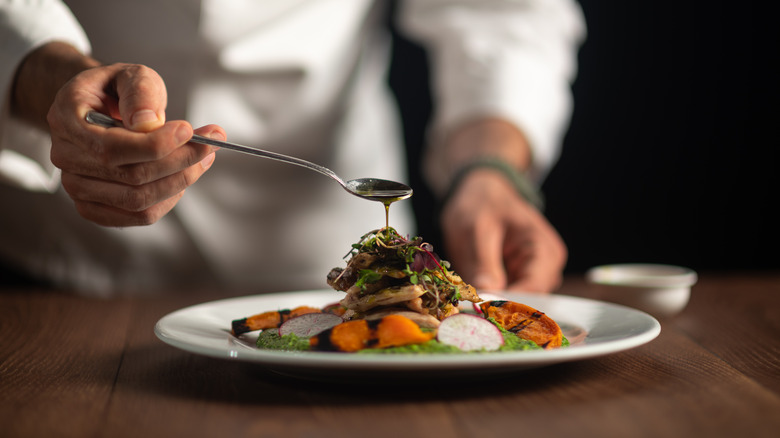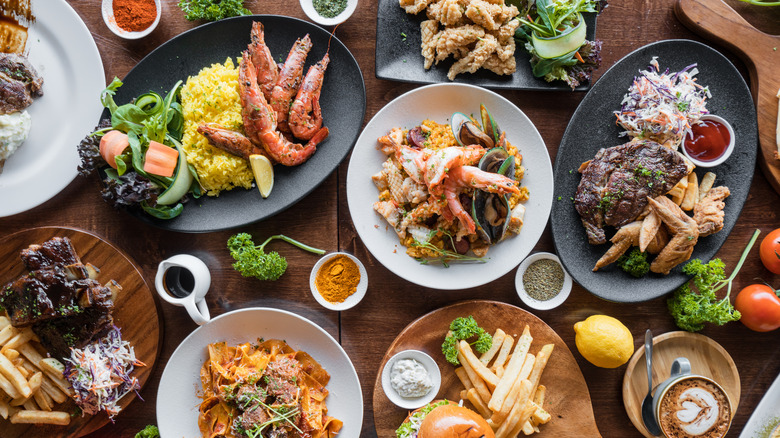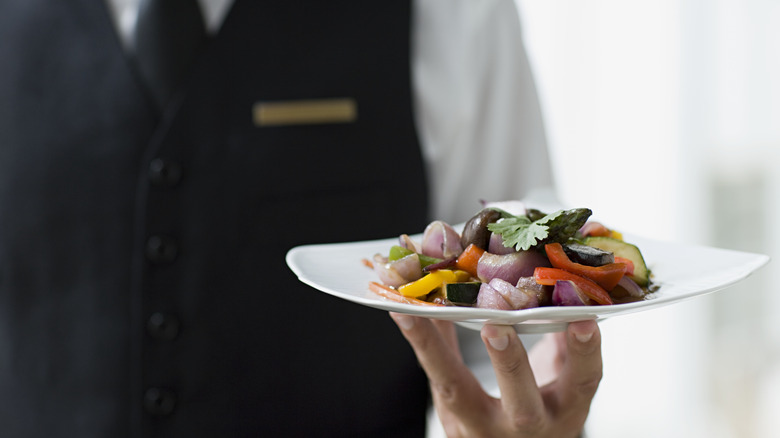Don't Be Deterred By The Biggest Myth About Restaurant Specials
Thanks to the way billions of humans have interacted with food over the course of our existence, the modern culinary world is filled with all sorts of tall tales and myths. From the notion that fish ordered on Mondays will never be fresh to the idea that New York City's water is the secret to its delicious pizza, there are countless fables once heralded as common knowledge that simply have no basis in fact. For example, chefs like Gordon Ramsay and Anthony Bourdain have pervaded the belief that restaurant specials are nothing more than a way for kitchens to get rid of leftover ingredients at a marked-up price. But in actuality, many restaurant specials are well-crafted meals cooked by professional chefs and are often worth giving a try.
First and foremost, even if the main purpose of restaurant specials is to get rid of meat and produce nearing an expiration date, that's not necessarily a bad thing. The restaurant industry generates tens of billions of pounds of food waste in the United States alone, so any effort to cut down on that number should be recognized.
Restaurant specials are like any other dish
No one wants someone else's half-eaten scraps for dinner, but that's far from what chefs do when they use up leftover ingredients. To be clear: it would be illegal for an establishment to recycle a meal for a new customer, so no restaurant would take the risk of DIY-ing a dish out of trash (the same can't always be said for restaurant bread baskets). Instead, a restaurant will try to make the most out of whatever ingredients it has on hand to make as much money as possible. Or, in some cases, a chef may have a surplus of ingredients that were gifted or purchased at a special rate, so they'll craft a special dish to get the most bang for their buck.
Furthermore, it's important to remember that cooking is an art. Whether they work at a small diner or a Michelin-starred eatery, every chef has the ability to put together interesting, delicious dishes. Restaurant specials are often the results of these experimentations and a great way to experience a chef's creative abilities firsthand. This is doubly true at small, family-run restaurants where the chefs aren't under pressure from CEOs or a certain corporate brand, so they are free to play as much as they want with taste and presentation. Trying specials can be a great way to help these growing restaurateurs develop their menu while supporting a local business.
Specials help develop a menu
Even for national restaurant chains, specials help establishments craft the menu. By strategically setting new specials, chefs can test-drive new dishes to prepare for big menu changes. Specials allow chefs to gauge customer feedback and fine-tune their creations before officially incorporating them into the full rotation. Over time, the restaurant will chart how well certain specials do compared to others, eventually helping the place refine the dining experience. That's also why it's okay to be honest when a waiter asks you how your food was — it helps the kitchen team make adjustments that will improve the dish (just don't be rude about it!).
Finally, even if a special doesn't sound so special to you, it's a dish that isn't typically served at that restaurant, so ordering it is a chance to try something new. Depending on the restaurant, it may be the chef's first opportunity to show off their skills and ingenuity. So, instead of zoning out the next time your waiter goes through the list of specials, listen for something that sounds yummy and interesting to you and give it a try. There are certainly some things you should avoid ordering at restaurants, fancy ones included, but the specials aren't on that list.


